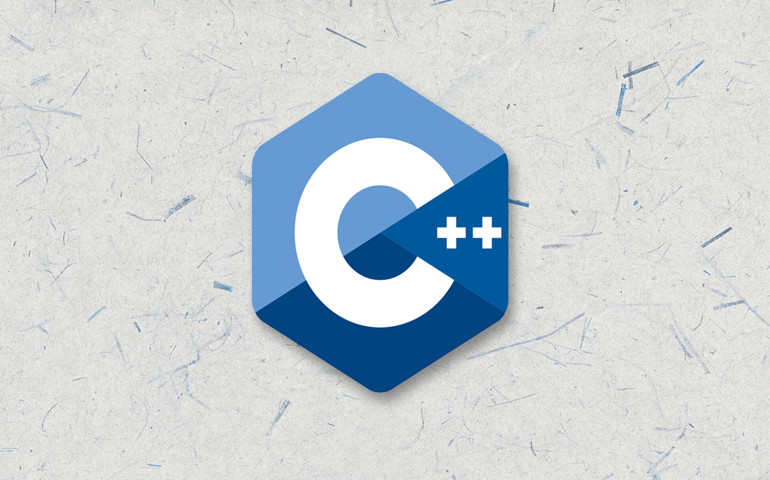Overview The “Learn C++ Fundamentals: Coding for Absolute Beginners” course is designed to provide an introduction to C++ programming language for absolute beginners who are …
Overview
The "Learn C++ Fundamentals: Coding for Absolute Beginners" course is designed to provide an introduction to C++ programming language for absolute beginners who are interested in learning how to code. The course starts by explaining the basics of C++ programming language and gradually moves towards advanced topics. The course is divided into ten sections. The first section provides an overview of C++ programming language and helps you set up your local development environment. The second section covers the basic concepts of C++, including variables, constants, data types, and operators. In the third section, you will learn about C++ data types, including integers, floats, and doubles. You will also learn about typecasting and how to use it in C++. The fourth section covers C++ operators, including arithmetic, logical, and relational operators. In the fifth section, you will learn about C++ strings and how to manipulate them using various string functions. The sixth section covers C++ decision-making, including if-else statements and switch statements. In the seventh section, you will learn about C++ control flow loops, including for loops, while loops, and do-while loops. The eighth section covers C++ arrays and how to use them to store multiple values. The ninth section covers C++ functions, including how to create and call functions in C++. You will also learn about function parameters and return types. In the final section, you will learn how to apply all the concepts you have learned throughout the course to create a complete C++ program. By the end of this course, you will have a solid foundation in C++ programming language, including knowledge of its basic syntax, data types, control flow, and functions. You will also have practical experience in developing C++ programs and a solid understanding of how to approach programming problems.What Will You Learn?
- Understand the basic concepts of C++ programming language
- Set up your local development environment for C++ programming
- Learn about C++ data types and how to use them in programs
- Understand C++ operators and their usage in programmatic operations
- Create and call functions in C++, including function parameters and return types
- Apply all the concepts learned throughout the course to create a complete C++ program
- Work with C++ strings and manipulate them using various string functions
- Understand the different decision-making constructs in C++, including if-else and switch statements
- Implement control flow loops in C++, including for loops, while loops, and do-while loops
- Learn about C++ arrays and how to use them to store multiple values
Who Should Take The C++ Fundamentals Course?
- Absolute beginners who have no prior programming experience and want to learn how to code in C++
- Individuals who want to learn C++ programming language as a first step towards becoming a software developer
- High school or college students who want to learn programming as a part of their curriculum
- Anyone who wants to learn a popular and widely used programming language for developing software applications
- Software developers who want to expand their skill set by learning a new programming language
- Anyone who wants to learn how to create simple programs using the C++ programming language
- Anyone who wants to start a career in the field of software development and programming
Requirements
- A computer with internet access
- No prior programming experience required
- Basic computer skills needed
- Willingness to learn and invest time and effort
- Desire to learn C++ programming language
Course Curriculum
-
- 1a intoduction 00:03:00
- 1b Course Curriculum 00:05:00
- 1c Getting started on Windows, Mac or Linux 00:01:00
- 1d How to ask great questions 00:01:00
- 1e FAQ’s 00:01:00
-
- 2a Introduction 00:01:00
- 2b CPP Futures 00:03:00
- 2C Why it Popular in Coding 00:04:00
- 2d Popular IDEs for Coding 00:03:00
- 2e Get and Installing Visual Studio Editor 00:11:00
- 2f Creating First Project 00:08:00
- 2g Your First CPP Program 00:08:00
- 2h Compiling and Run a CPP Program 00:04:00
- 3a Introduction 00:01:00
- 3b Creating Variables 00:12:00
- 3c Creating Multiple Variables 00:07:00
- 3d Constants 00:06:00
- 3e Identifiers 00:06:00
- 3f Naming Convention 00:04:00
- 3g Working with standard library 00:03:00
- 3h Output Text and New Lines 00:07:00
- 3i Reading User Input 00:08:00
- 3j Simple Calculator Program 00:06:00
- 3k Comments 00:03:00
- 5a Introduction 00:01:00
- 5b Arithmetic operators 00:05:00
- 5c Assignment operators 00:04:00
- 5d Comparison operators 00:05:00
- 5e Logical operators 00:09:00
- 7a Introduction 00:01:00
- 7b If statement 00:04:00
- 7c else statement 00:03:00
- 7d else if statement 00:04:00
- 7e Ternary operator 00:04:00
- 7f Switch-case statement 00:07:00
- 9a Introduction 00:01:00
- 9b Array statement 00:06:00
- 9c Change array data item 00:02:00
- 9d Read array data using loops 00:04:00
- 9e Multidimensional Array 00:05:00
- 9f Update Multidimensional Array 00:02:00
- 9g Loop through Multidimensional Array 00:04:00
- Order Certificate 00:05:00
Course Reviews
3
- 5 stars0
- 4 stars0
- 3 stars1
- 2 stars0
- 1 stars0
New Courses
Blogs
Jul'23
ADHD Training for Teachers: Empowering Educators to Support Students with Attention Challenges
Relationships may be severely harmed by narcissistic behaviours, leaving emotional scars and...
Jul'23
Narcissistic Behaviour and Relationships: Understanding the Impact and Finding Healing
Relationships may be severely harmed by narcissistic behaviours, leaving emotional...
Jul'23
Childhood Trauma in Adults
What Is Childhood Trauma? Childhood trauma refers to distressing or...
Jul'23
Creating A Social Media Strategy
Set Clear Objectives:The first step in developing a successful social media...
Jul'23
Neuro-Linguistic Programming Techniques
Neuro-Linguistic Programming (NLP) is a fascinating and widely acclaimed approach...
Jul'23
Acceptance and Commitment Therapy in the UK
What is acceptance and commitment therapy? Acceptance and Commitment Therapy...






informative